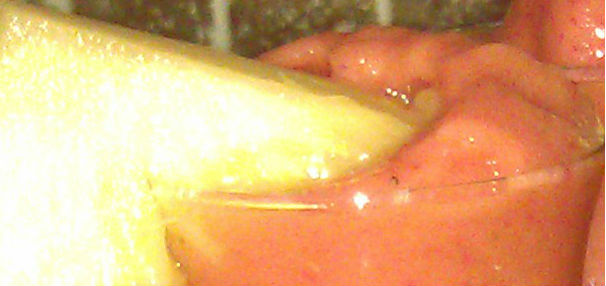Are smoothies a healthy drink?
By Noor H. Salem
While smoothies are quickly sought out to be a healthy drink to grab, I’d recommend you be more careful when consuming them. If you are picking up a smoothie from a fast food chain, or even a bottled smoothie at the supermarket, I’d advise you decrease this habit. The majority of bottled and pre-made smoothies will need some sort of preservatives for discoloration and taste optimization. They may come along with way more sugar than you’d ever imagine, and chemicals you cannot pronounce. The same concept goes for restaurants and fast food chains. The billboard may advertise it as healthy, and of course the image has a ton of fresh fruit beside the cup of what looks like a refreshing and delicious smoothie. Purchase the smoothie, and everything changes. It will most likely be sweeter than a candy bar, and looks nothing like what was advertised. Forget the appearance; the ingredients in there are undoubtedly more than what you’d put in a smoothie at home. High fructose corn syrup, food dyes, or artificial sweeteners are popularly used. If dairy products are used, they are conceivably low quality, coming from livestock fed antibiotics and hormones. Being more aware of what may be in your drink will allow you to not want it all together. Making smoothies at home is tremendously easy alternative. Try this recipe below for a healthy morning drink, or an afternoon snack.
Excitingly, this recipe contains a food the Prophet loved to eat. Musk-melon is another name for what is widely known as cantaloupe. Although I cannot mention all of the benefits here, modern research has proven a drastic number of health conditions cantaloupe can aid to prevent or cure. I mention these all in depth in my book, Sunnah Superfoods, but for now try to consume more cantaloupe.
This smoothie is extremely high in Vitamin C, fiber, beta-carotene and a myriad of vital nutrients. In fact, just one cup of cantaloupe has 78% of the daily requirement of Vitamin C. Pairing it with strawberries and pineapple in this recipe is only heightening that percentage further. This smoothie does not contain high fructose corn syrup, red 40, or carcinogens, which would likely be found in a smoothie or fruit drink you purchase from restaurants and fast food. Unfortunately, many of these smoothies are advertised as a health food, and may even advertise using slogans such as, “made with real fruit.” While it might include half a slice of a fresh banana, or some highly sweetened strawberry concentrate, it does not guarantee you in any shape or form that it’s free of chemicals nor ingredients harmful to your health in the long run.
The delicious taste of this smoothie will keep you wondering how something so delicious, could in fact be so health promoting. You can easily swap the strawberries for raspberries or blueberries. You can exclude the fruit you don’t like, and even make this with milk if you prefer a creamier taste. If this sweetness is not enough for you, don’t add sugar or artificial sweeteners. Add a spoon or two of organic, raw, honey, and your taste buds will thank you.
Ingredients
2 cups fresh musk- melon, cut into cubes
1 cup fresh pineapple, sliced
2 cups frozen organic strawberries
1 cup frozen mango cubes
2 cups cold water
Few slices of fresh pineapple, optional
Directions
Place all of the ingredients in a high-speed blender and pulse until smooth.
Pour into serving glasses. Place a slice of fresh pineapple on each cup.
Serve immediately.
Editor’s Note: Noor Salem is a Certified Integrative Nutrition Health Coach, and is CEO of her own wellness practice, Holistic Noortrition, LLC. Noor specialized in women’s health, weight loss, and food intolerance versus allergies. She offers individual and group health coaching programs, and is a speaker on the topic of holistic health at workshops and seminars. The views expressed here are her own. Noor recently published her book, SUNNAH SUPERFOODS, with numerous health tips, recipes, and prophetic remedies. Her views are her own.


















2016
1,017 views
views
0
comments